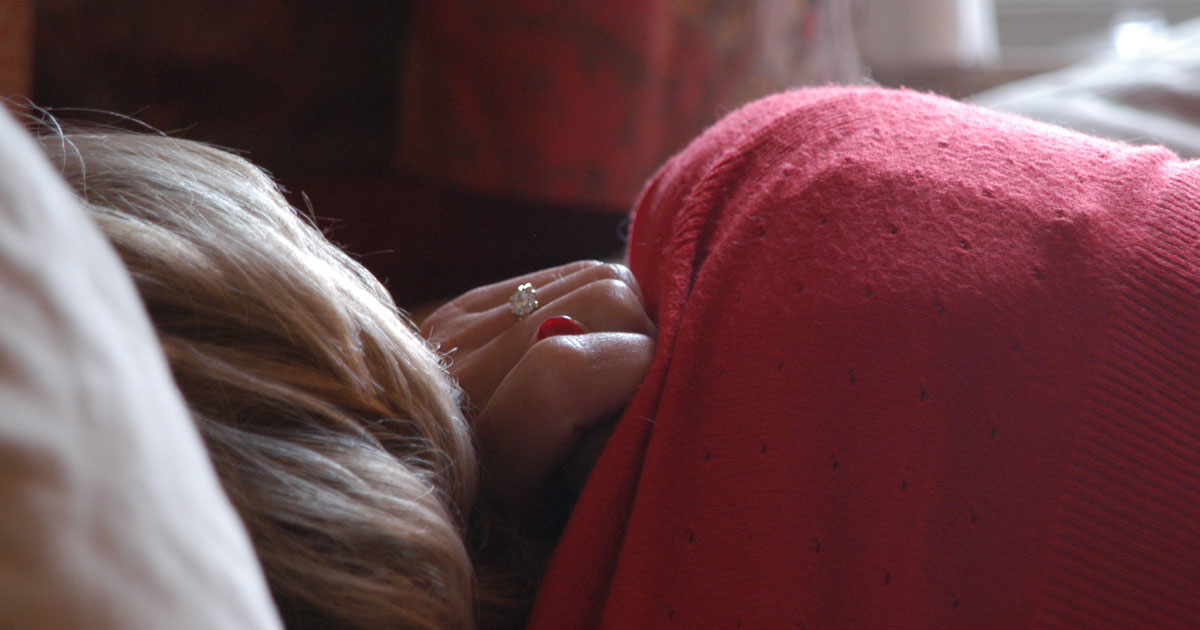This year marks my twenty-third winter in Michigan, although I really can't remember the first few because who actually remembers anything significant before the age of four?
Exactly. No one. Despite being a born-and-raised Yooper and black belt in winterizing, I still hate Michigan's fourth and final season with the fiery passion of 1,000 suns. (Well, apparently not, because white stuff is still everywhere.)
Unless your name is Yukon Cornelius, winter is hard. Sure, it's ridiculously frigid and you have to shuffle everywhere dressed like the Michelin Man, and you haven't felt your pinky toes since late November, but "being cold" is the least of winter's repercussions on the human body. Like many others, I take up the House of Stark motto each November and ride "winter is coming" straight into the deep, dark recesses of my bed. If I had it my way, I'd only leave my heating blanket when nature calls or the pizza boy rings my doorbell. Unfortunately, life goes on no matter how deeply the cold permeates my chest; no matter how many calls go ignored and texts unanswered; no matter how sad I am about being SAD.
Between ten and twenty percent of Americans exhibit symptoms of Seasonal Affective Disorder, or SAD (how convenient), with four to six percent receiving a formal diagnosis each year. And before any opinionated, judgmental jerks jump all over this with their ignorant ideas toward mental health, let me make one thing clear: You do not have to suffer from a pre-existing mental illness to struggle with SAD. Yes, "normal" people get it, too. Why? Three reasons—your biological clock, or circadian rhythm, knows someone turned the outside world's lights off; you're running low on "feel good" hormones, commonly known as serotonin; and/or your sleep pattern has been thrown off due to decreased levels of our dear friend melatonin.
Now, I know what you're thinking:
"How the hell am I supposed to change circumstances outside of my control so I can get out of bed and put the Oreos back where they belong (not within arm's reach of my bed)?"
As an individual who lives with depression year-round, I've had the better part of a decade to explore mood-stabilizing strategies during Mother Nature's darkest hours. Please keep in mind that different things work for different people. You actually are unique—which is a beautiful thing—and thus need to find your own formula for beating winter blues.
Not sure where to start? Here are a few ideas, backed up by fancy medical research and stuff:
WERK IT.
Elle Woods said it best: "Exercise gives you endorphins. Endorphins make you happy. Happy people just don't shoot their husbands. They just don't." OK. Maybe it's a slightly dramatic (but totally true) example. Thirty minutes of sweating it out a day will boost endorphins, which are commonly affiliated with "runner's high" and energy levels. If fighting with a meathead for the Stairmill isn't your thing, try at-home workout programs such as Tone It Up or Blogilates; both require limited equipment, offer multiple meal plan options for eaters of all types, and have large, supportive online communities to help keep you accountable.
FREEZE YOUR CHEEKS OFF.
You can think I'm crazy with this one; I do, too. Getting outside offers two major mood-boosters your bed doesn't—natural light and fresh air. While it may be a touch nipply, throwing on a few layers to enjoy your morning coffee on the front porch or taking a walk around the block during your lunch hour has proven effective for many SAD people.
GIVE YOURSELF THE D.
Vitamin D. What were you thinking? If you can't soak up the sun's rays, the next best option is incorporating it into your daily supplement regimen. (Yes, you should have one of these.) If Mary Poppins had been a psychiatrist, I imagine her mantra would've been something along the lines of "a spoonful of D kicks the blues out of me."
Cut me some slack. I'm no Sondheim.
SCHEDULE SOME ZZZZZ'S.
Keeping a regular, healthy sleep schedule is important in every season. If you're getting too little, chances are you're an irritable rash everywhere you go. If you're sleeping too much, lethargy can seep into other areas of life—work, exercise, and diet, to name a few. Depending on your age, the average adult requires between seven and eight hours of sleep per night. You know you've reached adulthood when you enforce your own bedtime (and feel great about it). I always say I'm happiest horizontal.
 INTERACT WITH OTHER HUMANS.
INTERACT WITH OTHER HUMANS.
The last thing I want to do on a cold Friday night is put on real pants—or any pants—and go gallivanting across Grand Rapids with other people. Too damn bad. Go. Be social. Laugh, cry, dance, sing "Total Eclipse of the Heart" at the corner karaoke bar ... Just live life with other people. Spending time alone (no, Netflix is not a person) only exacerbates the SADness you're feeling.
SEEK HELP.
There is no shame in seeking professional help for your winter blues. Talking with a professional is incredibly freeing and provides the opportunity to share openly and honestly—something that can be difficult with family and friends. If your doctor or therapist recommends exploring medication to help you out, try it. Recognizing you can't do something on your own is brave and self-serving, for all the right reasons.
Written by Chantell "Telly" LaForest, project manager for 834 Design & Marketing, located on Grand Rapids' west side. Chantell is an Upper Peninsula native who moved to Grand Rapids in June 2013 after earning a bachelor's degree in public relations from Central Michigan University. (Fire Up Chips!)




